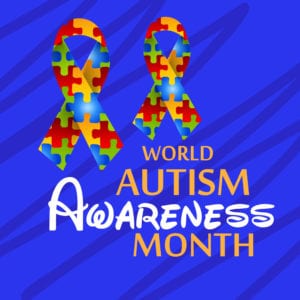What you should know about Autism Spectrum Disorders (ASDs)
Do you tell yourself your child is just unique and prefers to keep to himself / herself or do you wonder if there may be something more to that uniqueness?
Autism Spectrum Disorder is a condition marked by a spectrum or range of challenges with social skills, speech and nonverbal communication, repetitive behaviours, sensory processing difficulties, as well as unique strengths and differences. ASD now covers previous terms such as Autism and Asperger’s Disorder.
Most obvious signs of ASD are noticed between 2 and 3 years of age. In some cases, signs can also be apparent as early as 18 months.
Developmental milestones are used as markers to inform us how children are developing in relation to the population. Although is important to note that children develop at different rates, there are milestones that can be indicative of the presence of Autism.
Following are possible signs of ASD in babies and toddlers that might indicate the need for further assessment by a psychologist:
- By 6 months, no social smiles or other warm, joyful expressions directed at people.
- By 6 months, limited or no eye contact.
- By 9 months, no sharing of vocal sounds, smiles or other nonverbal communication
- By 12 months, no babbling
- By 12 months, no use of gestures to communicate (e.g. pointing, reaching, waving, etc.)
- By 12 months, no response to name when called
- By 16 months, no words
- By 24 months, no meaningful, two word phrases
- Any loss of any previously acquired speech, babbling or social skills
Following are possible signs of ASD at any age; and when a child has several of these difficulties they may benefit from support by a psychologist:
- Avoiding eye contact
- Preferring to be left alone
- Struggling with understanding other people’s feelings
- Acting as though other people should know what they are thinking but having difficulty understanding other people’s point of view
- Remaining nonverbal or considerably delayed language development
- Repeating words or phrases over and over (echolalia), or talking gibberish (jargon)
- Becoming unreasonably upset by minor changes in routine or surroundings
- Mood swings and tantrums that are difficult to predict and difficult to soothe
- Having highly restricted interests (special interests that might be obsessions)
- Engaging in repetitive behaviours such as flapping, rocking or spinning
- Having unusual and often intense reactions to sounds, smells, tastes, textures, lights and/ or colours
- Fussy eating and food aversion
- Poor fine motor development
- Difficulty learning
- Poor sleep
Our Vida Psychology Child and Adolescent Psychologists are experienced in not only diagnosing Autism Spectrum Disorder, but also supporting children and adolescents who have an ASD, and their families.
If you have any concerns that your child may have autism, your family doctor will be the best place to start. Children with autism may benefit from being supported by a team of various professionals and your family doctor can assist in facilitating this process.

